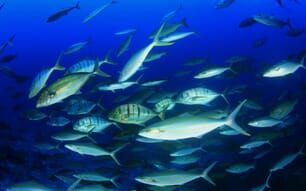Recent requirements to set scientifically based catch limits in several countries, and growing consumer demand for sustainably managed fish have spurred an emerging field of methods for estimating overfishing thresholds and setting catch limits for stocks with limited data.
Using a management strategy evaluation framework we quantified the performance of a number of data-limited methods. For most life-histories, we found that methods that made use of only historical catches often performed worse than maintaining current fishing levels.
Only those methods that dynamically accounted for changes in abundance and/or depletion performed well at low stock sizes.
Stock assessments that make use of historical catch and effort data did not necessarily out-perform simpler data-limited methods that made use of fewer data.
There is a high value of additional information regarding stock depletion, historical fishing effort and current abundance when only catch data are available. We discuss the implications of our results for other data-limited methods and identify future research priorities.
July 2014

